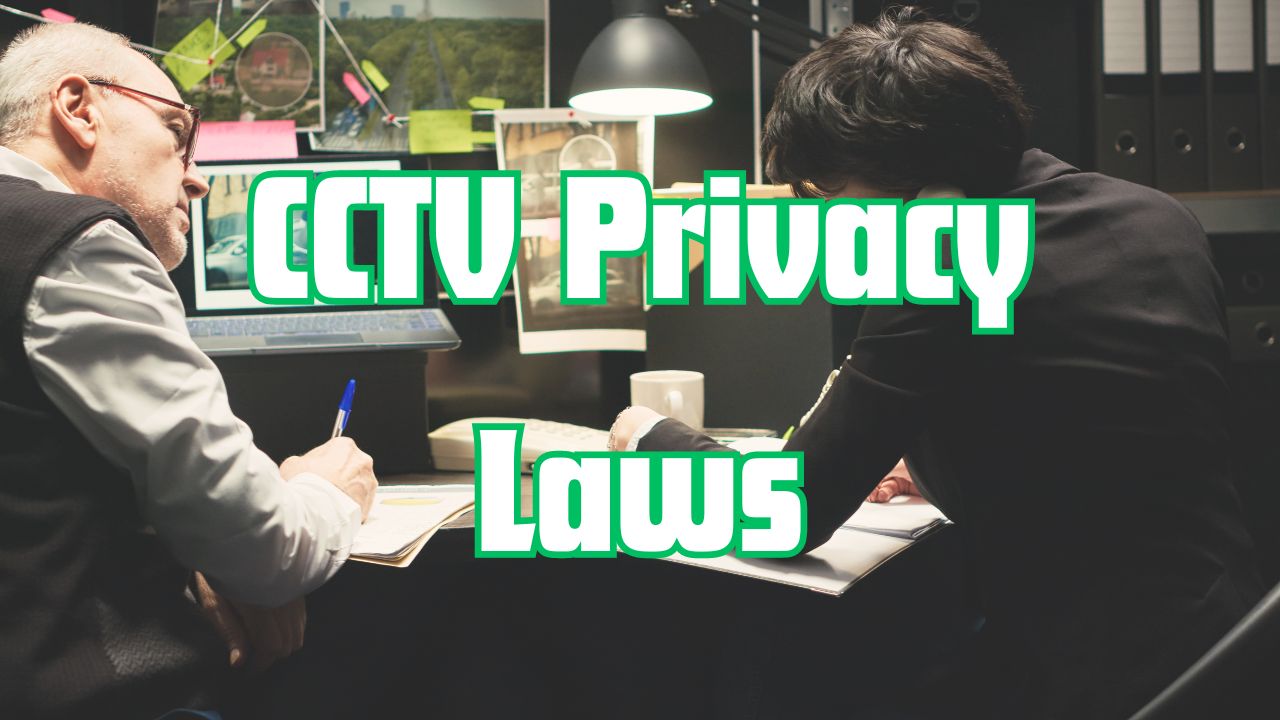CCTV Privacy Laws: Understanding Regulations and Compliance
Closed-Circuit Television (CCTV) systems have become widespread in the UK. These surveillance systems play a crucial role in deterring criminal activities, ensuring public safety, and safeguarding properties. However, the extensive use of CCTV brings forth important questions regarding privacy rights and legal compliance. In this blog, we will look at the intricacies of CCTV privacy regulations, shedding light on regulations and compliance for a safer and more secure society.
CCTV Privacy Regulations
The use of surveillance cameras in public spaces has become a common sight. From city centers to shopping malls, and even residential areas, CCTV systems are integral to modern security practices. To strike a balance between security and privacy, the UK has implemented specific regulations governing the use of CCTV.
Data Protection Act 2018 and CCTV Privacy
The Data Protection Act 2018 is a cornerstone in the legal framework that governs the use of CCTV systems in the UK. Under this act, individuals have the right to know when they are being filmed, the purpose of the surveillance, and who is responsible for the data collected. It places a responsibility on those using CCTV to process the data lawfully, transparently, and for legitimate purposes.

Surveillance Camera Code of Practice
In addition to the Data Protection Act, the Surveillance Camera Code of Practice offers guidelines for the use of surveillance cameras, including CCTV systems. Developed by the Information Commissioner’s Office (ICO), this code emphasises transparency, accountability, and compliance with legal requirements. Organisations are encouraged to follow the principles outlined in the code to ensure ethical and lawful use of surveillance cameras.
Compliance with CCTV Privacy Laws
Ensuring compliance with CCTV privacy regulations is a fundamental aspect of respecting individuals' privacy rights. Businesses, public institutions, and private entities employing CCTV systems must adhere to the following principles to comply with the law.
Clearly Display Signage
One of the primary requirements for compliance is the placement of clear and visible signs indicating the presence of CCTV cameras. This informs individuals that they are being monitored and contributes to transparency as mandated by the regulations. Proper signage serves as a proactive measure, setting the tone for responsible use.
Purpose Limitation and Data Minimisation
CCTV systems should be used for specific and legitimate purposes. The data collected must be relevant, adequate, and not excessive for the intended purpose. Avoiding unnecessary surveillance and limiting data retention are essential steps in compliance with privacy laws.
Access Controls and Encryption
To protect the privacy of individuals, access to CCTV footage should be restricted to authorised personnel only. Implementing robust access controls and encryption measures ensures that the recorded data remains secure and is not susceptible to unauthorised access or tampering.
Periodic Privacy Impact Assessments
Conducting Privacy Impact Assessments (PIAs) is a proactive measure to identify and mitigate potential privacy risks associated with CCTV systems. Regularly reviewing the impact of surveillance on privacy allows organisations to make necessary adjustments, demonstrating a commitment to compliance and responsible use of technology.
Legal Requirements for Security Cameras
Beyond general compliance principles, certain legal requirements for security cameras must be met, whether for public surveillance or private security purposes.
Manned Guarding and Personal Protection
In some situations, the use of manned guarding or personal protection services might be a more suitable alternative to extensive CCTV surveillance. While technology plays a vital role, a human presence can provide a dynamic response to security threats, ensuring a balanced approach that respects privacy rights.
CCTV Monitoring and Private Security
CCTV monitoring by private security personnel must adhere to the same privacy regulations as automated systems. The individuals responsible for monitoring should be trained on surveillance camera laws, and access to recorded footage should be restricted to authorised personnel. This approach ensures that even in situations where human intervention is involved, privacy rights are safeguarded.
Privacy Rights in CCTV Surveillance
Individuals have rights when it comes to being monitored by CCTV systems. Understanding privacy rights in CCTV surveillance is crucial for both those being observed and those responsible for the surveillance.
Right to Information
Individuals have the right to know if they are being recorded and the purpose of the surveillance. Transparent communication about the presence of CCTV cameras helps build trust and demonstrates a commitment to privacy.
Right to Access Footage
Under the Data Protection Act, individuals have the right to request access to the footage in which they appear. This transparency empowers individuals to ensure their rights are respected and allows them to address any concerns about the use of CCTV.
Right to Deletion
If the retention period for CCTV footage has expired or if the data is no longer necessary for the purpose it was collected, individuals have the right to request the deletion of their personal data. This aligns with the principles of data minimisation and purpose limitation.
Understanding surveillance camera laws in the UK is essential for individuals and organisations alike. Striking a balance between security measures and privacy rights is not only a legal requirement but a societal responsibility. By understanding and complying with regulations, using technology responsibly, and respecting individuals' rights, we can create a safer and more secure environment without compromising privacy. If you need CCTV monitoring services, contact 1st Class Protection now.
Sign up to our newsletter for the latest security news, information and updates.